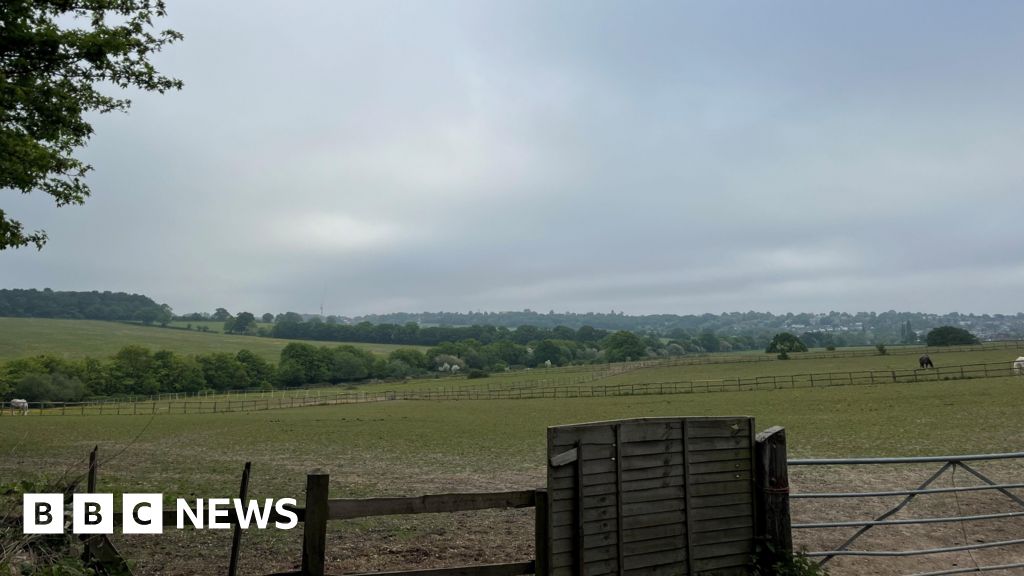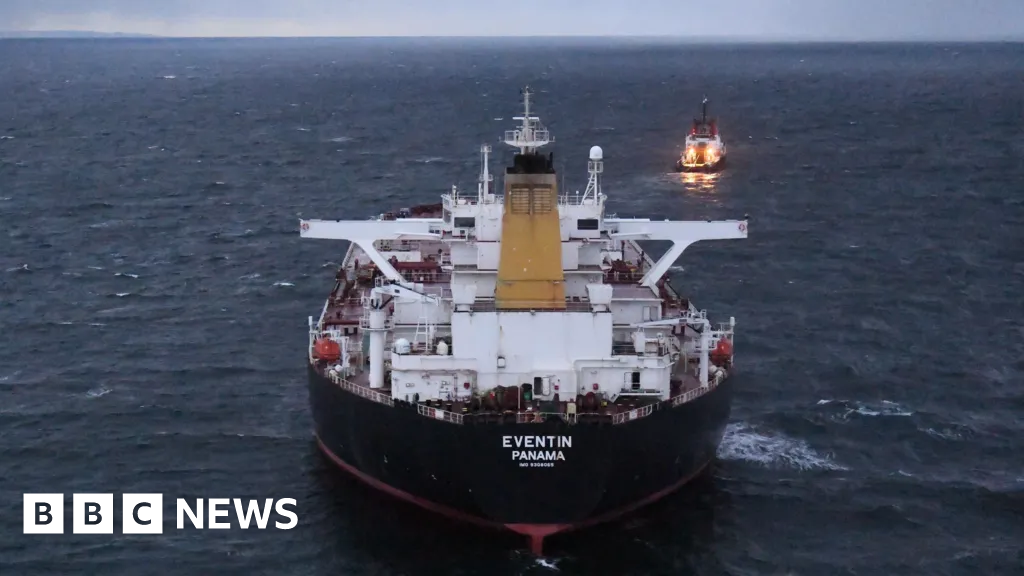ARTICLE AD BOX
Watch: Iran suffered "double defeat", says Lord Cameron
The UK joined Israel's defence against Iran in order to prevent an escalation of the conflict, Lord Cameron has said.
RAF jets intercepted a small number of drones bound for Israel in Iran's first ever direct attack on its territory.
The foreign secretary told the BBC the attack was a "double defeat" for Iran that could have resulted in thousands of casualties and led to greater escalation had it been successful.
He is urging Israel to be "smart" and "tough" as it considers its response.
Speaking to BBC Radio 4's Today programme, the former prime minister added that Israel should turn its focus once more to the situation in Gaza and securing a deal to get the hostages home.
"This in many ways has been a double defeat for Iran," he said.
"Not only was the operation almost wholly unsuccessful - almost all the weapons were shot down - but also in a second defeat the whole world can see... they are the malign influence in the region."
Lord Cameron added that the UK did not support a retaliatory strike, echoing US President Joe Biden's comment that Israel should "take the win".
"Now is the time to be smart as well as tough, a time to think with head as well as heart."
The UN Secretary General Antonio Guterres and Germany's foreign minister Annalena Baerbock have also called for calm, while French President Emmanuel Macron said France would do everything possible to avoid what he described as a regional conflagration.
It is unclear how Israel plans to respond, but a member of its war cabinet, Benny Gantz, has said it will "exact a price" when the timing is right.
A spokesperson for the UK prime minister said the country and its allies were "clearly not briefed" by Tehran, in response to Iran's assertation that it gave advanced warning of the attack.
Rishi Sunak is expected to give further details about British involvement in repelling Iran in the House of Commons on Monday.
Iran launched about 300 weapons at Israel overnight on Saturday and into Sunday, in a widely-anticipated retaliatory attack.
Lord Cameron said that included 110 ballistic missiles and 36 cruise missiles.
The Israeli military confirmed it had intercepted the majority of the attacks - mostly outside of Israel's airspace - with the help of other countries.
Attack drones were intercepted by the RAF in Syrian and Iraqi airspace, where it was already operating with the US as part of the Operation Shader mission against the Islamic State group.
Lord Cameron confirmed the UK's role was to "backfill" for the US and the RAF had agreed to shoot down Iranian drones if they came through that airspace.
Watch: BBC Verify examines video from Iran's attack on Israel
The Ministry of Defence has not said how many RAF Typhoons were airborne, nor how many weapons it shot down.
Iran's attacks come after Tehran vowed to retaliate over a strike on its consulate in Syria on 1 April, which killed seven Islamic Revolutionary Guard Corps officers, including a top commander.
The Iranian government has accused Israel of carrying out that attack, but Israel has neither confirmed nor denied it.
Lord Cameron said the response by Iran was of a "different order" to the consulate strike, adding that the UK acted "entirely in our national interest" by getting involved to avoid further escalation.
Iran and Israel were allies until the Islamic Revolution in 1979, which ushered in an era of tensions between the two nations.
Attacks on Israel up until this point had been conducted through the funding and arming of Iran's proxies - the Houthis in Yemen, Hezbollah in Lebanon and Hamas in Gaza.
The war in Gaza was triggered after waves of Hamas gunmen stormed across the southern border, killing about 1,200 people and taking more than 250 hostage.
Israel vowed to eliminate Hamas and has launched retaliatory operations in Gaza which have killed more than 33,000 people, including thousands of children, according to the Hamas-run health ministry.
Israeli Prime Minister Benjamin Netanyahu had been coming under increasing international pressure over how his government was handling the conflict, including over allowing more access to aid.
Lord Cameron maintained the UK's repeated position of Israel's right to self-defence and said he was focused on bringing about a pause in fighting followed by a sustainable ceasefire.
He said applying an arms embargo, which some have called for, would have looked "ridiculous" in light of the 7 October attacks.
Downing Street said that Labour leader Sir Keir Starmer was kept updated on the situation throughout Saturday night and that there were "no current plans" to publish any legal advice the government received.
In response to the UK's involvement, shadow defence secretary John Healey told the BBC: "We need to hear the reasons for the military action, the legal basis for it" and what the government is doing to "pursue the path of peace and a ceasefire in Gaza".

 1 year ago
61
1 year ago
61








 English (US) ·
English (US) ·